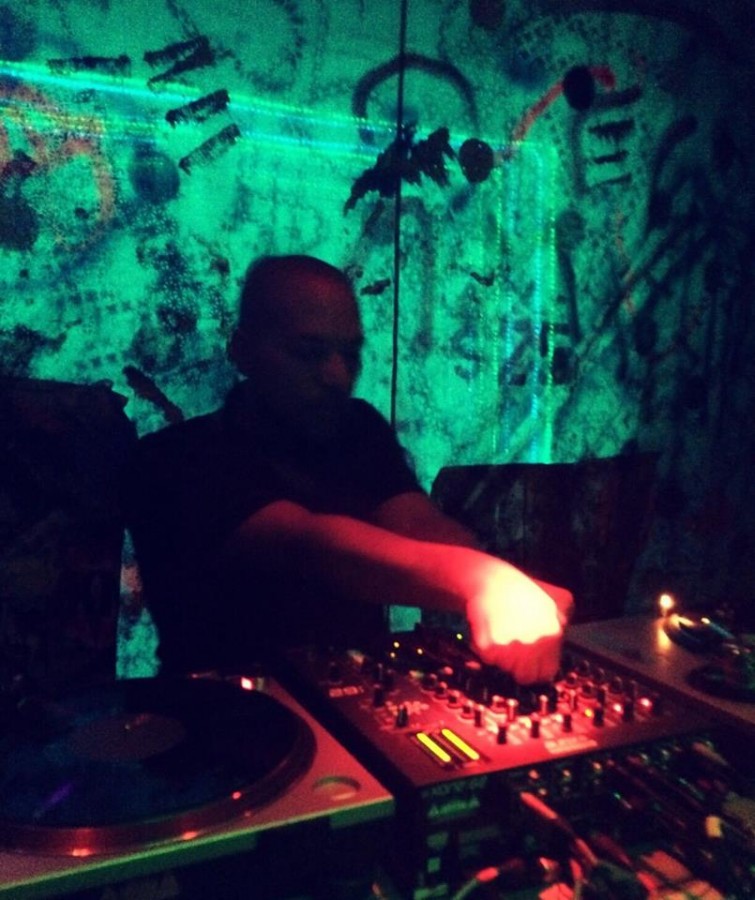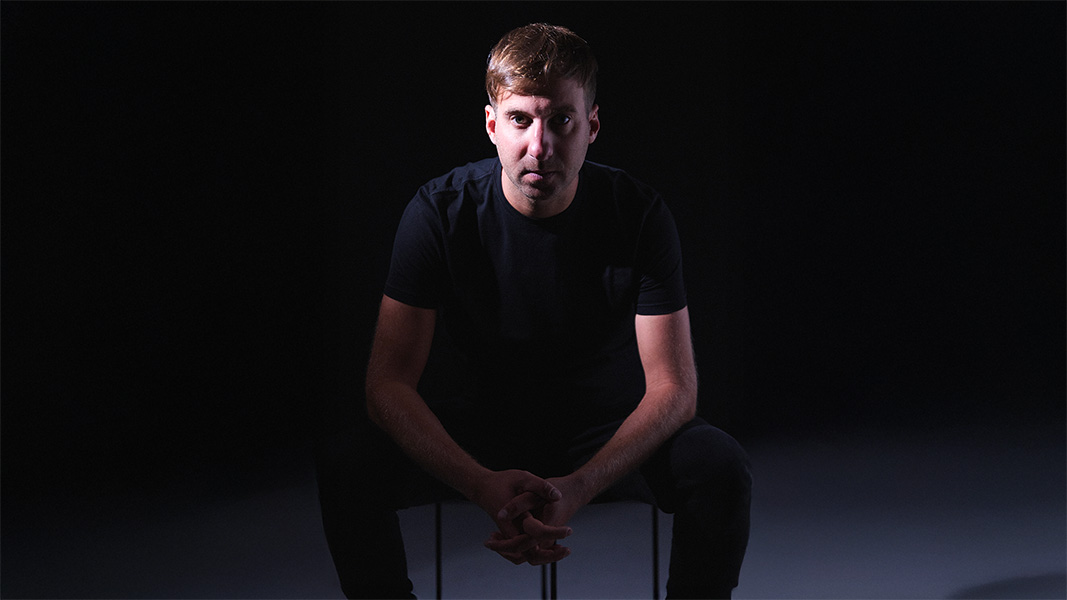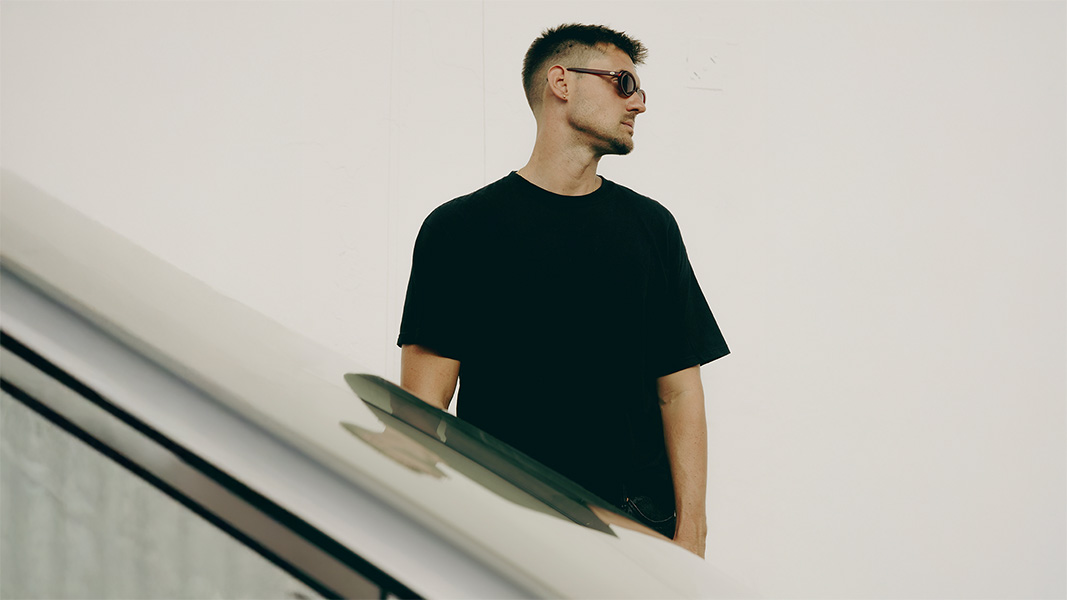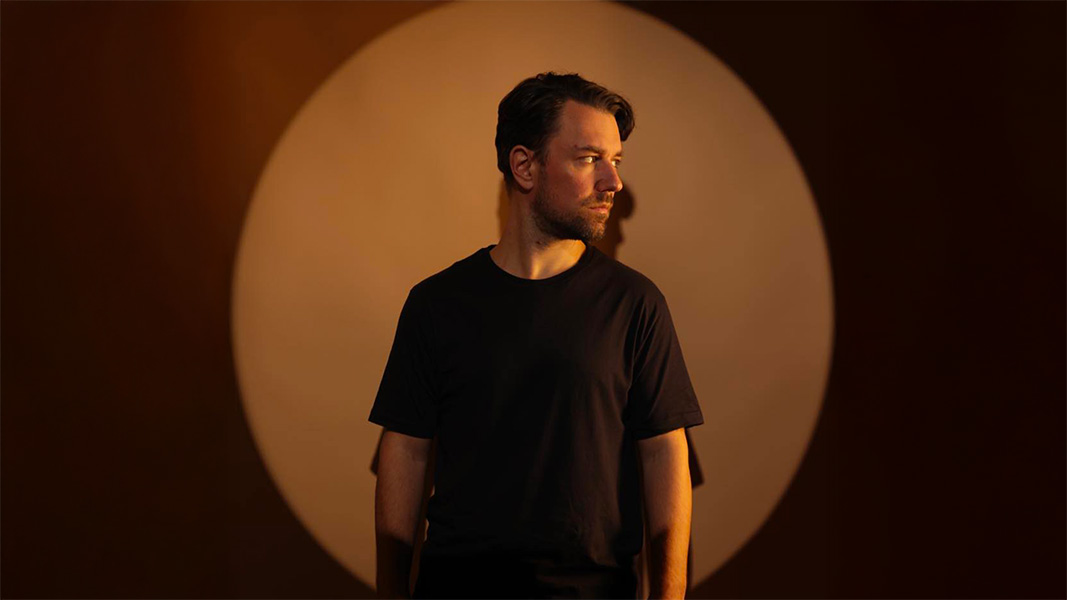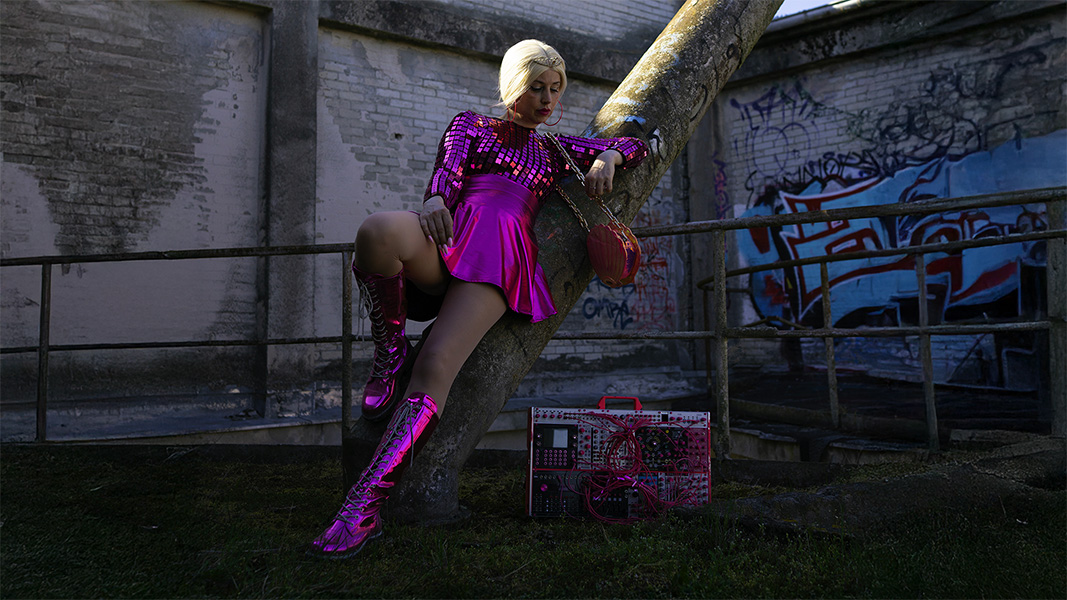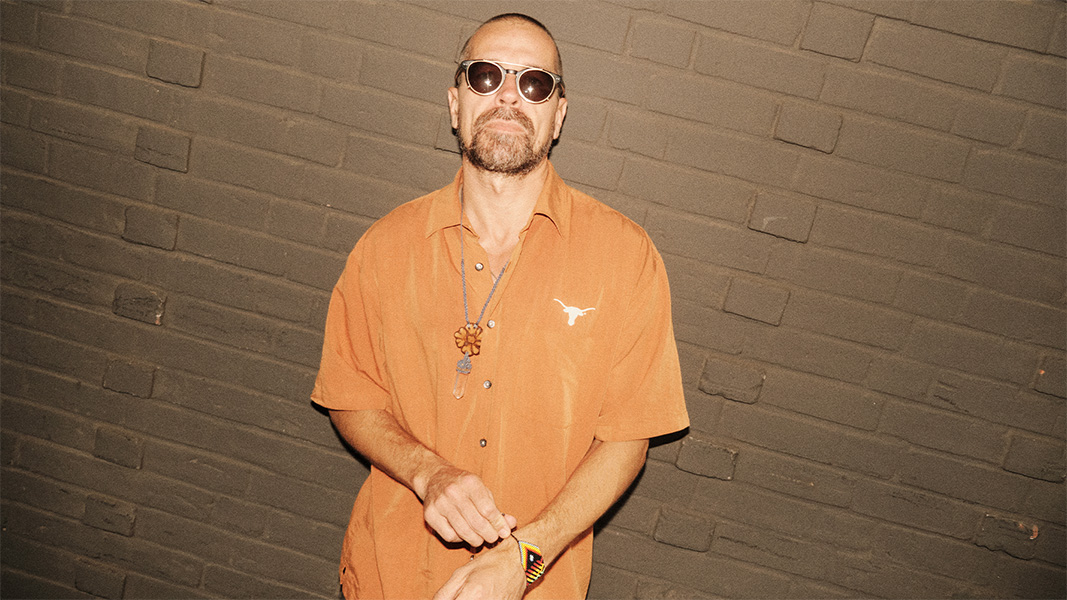New York native Reade Truth has been rocking the decks since 1990. Known as a DJ’s DJ, he consistently provides dance floors with intelligent, innovative often edgy electronics always delivered with style. One of New York’s early pioneers of techno and DJ culture, Reade Truth has been an integral part of the cities’ techno history. Recently we had the chance to sit down and talk with Reade about coming up in New York in the early 1990’s, the infamous cabaret laws that have been holding back the cities music scene for decades now and what differences he has seen in his 25+ year career. We are delighted to welcome Reade to the 83rd episode of our central mix series.
WWD: Hey Reade! Firstly, I just wanted to say thank you so much for taking the time to sit down with us. I know that we have rescheduled this so many time that it seemed like this was never going to happen so we are delighted to finally have you here with us. So, we will dive straight into it, you have obviously had a very long career starting somewhere in the early 90’s? Tell us a little bit about it.
Reade: Yeah! Well, I started Djing in New York clubs in 1990 at a place called The Pyramid in the lower east side. I had been Djing prior to that but that was my first official set in a club. I came out of the industrial scene so, I was playing a lot of industrial and EBM in the beginning and around 1990 or 1991 the techno rave explosion happened. A lot of the Belgian stuff started coming out. And there was a lot of crossover. So it was kind of like a collision of those two scenes in New York and particularly in Brooklyn.
WWD: And coming from Brooklyn, a place which has always had a very prominent music scene across a wide variety of genres. But what was it that interested you in Djing?
Reade: It is interesting because my dad was a sports guy, he was actually a professional baseball player and that wasn’t really my niche. But he used to play a lot of 70’s stuff like funk and soul stuff like Parliament Funkadelic and things like that. But what I was most impressed by was the electronic sound of a lot of these bands. I had never heard anything like that and when I started to hear synthesizers I slowly got obsessed with electronic music. Growing up I would say I really latched onto stuff like Mute records and early experimental industrial stuff. I was always the guy, as a teenager, who had all of the records! So I think it was just a natural thing that whenever there was a party and the question came of up of “Who is going to take care of the music?” the answer was always “Of course it’s going to be Reade.”
WWD: So then once you started getting into Djing, at the same time Mayor Giuliani gets elected into office and starts closing everything down. At what point did you feel like the bubble had popped in New York?
Reade: Well it is actually pretty interesting because there is a long-standing war between the clubs and the rave scene. But the first thing that you have to know is that the nightlife in New York is very corrupt. If you don’t know there is this thing called the Cabaret Licence. Which is harder to get than a liquor licence. Basically, what it says is that if you have more than 5 people dancing then you need a licence. It is absolutely absurd and this probably stems from the clubs feeling like they were losing business to the rave scene. The clubs had a very aggressive, underhanded campaign, to try and shut down a lot of the parties that were going on. So, during this time Giuliani was elected and then in about ’94 is when things really started happening. Like every weekend you would hear of a party getting shut down by police. Because of this, in Manhattan a lot of smaller venues like bars became very prominent but didn’t have that licence, so they also started being shut down. At the time we kind of thought of it as a war on underground music in general… coming from more mainstream club culture who didn’t want anyone stealing their business.
WWD: That is really interesting because it kind of ended up backfiring on everybody in the end.
Reade: Yeah but New York is such a huge city and it has such a wide mix of people and culture that it would be beneficial to the New York economy to have a thriving club scene. So what some of my friends are doing now is they are trying to repeal the cabaret law and they are trying to get the city to look at these events favourably from an economic point of view. Kind of what they have in Berlin where the government recognises the benefits of having a thriving nightlife. So maybe something like this will happen in New York, maybe they’ll get it, maybe they won’t… we will see.
WWD: It’s interesting how having a thriving night time culture can be financially good for a city because one of the candidates for the new mayor in Detroit has made the potential night time economy in the city one of the pillars of their campaign. But obviously it has been working in places like Amsterdam and London where they have recently employed “Night Mayors” because they have realised and value the massive extent of what a thriving nightlife can do for a city.
Reade: Yeah, I think there are other aspects that can be promoted too. For instance, with clubs closing at 4am it makes it difficult to get home, if the public transport system isn’t up to par, you get people driving home after being out all night. So,if you had a scene where the clubs stay open longer it makes thngs a lot safer, actually. You don’t have as much danger on the roads and people who want to have a good time have a place to go. I think that these things should be essential for a city like New York.
As you mentioned Detroit has been talking about it and that’s great! I think that the main driving force in that is the Movement Festival. Because the city has seen first-hand that a place that doesn’t attract any tourism at all, ever, once a year they are getting tens of thousands of people coming through just for electronic music. It ‘s a very binding experience and I think people are finally starting to see the power of this music is and that it isn’t going anywhere.
WWD: I had read in a previous interview of yours you were asked a question of if someone was going to New York for a week what should they do and where should they go. And your response was something along the lines of “go back to ’93 because there is nothing going on now”.
Reade: (He laughs) Yeah but you know what? I would say that there are interesting things happening right now. Not so much in terms of the venues and the promoters, but in terms of labels and producers, this is a great time for the music. There is a lot of really cool, interesting stuff coming out. It seems to me like fashion is right now in the way you can see every decade of style out on the streets when you go outside. In electronic music now it is kind of the same. Because it used to be different, more trendy. Everybody did house and then they did the next variation for 6 months, rave, tribal, ambient this and that style… it was very much a culture of following trends. Now people are just doing what they feel and you have some really great stuff coming out in every style simultaneously and that is very interesting.
WWD: I think though one of the biggest things that contributes to this is the development over the last 5-10 years of the internet and social media.
Reade: There’s pros and cons to the digital thing man. That is very true that you have access to a wide range, a much wider range, than you ever did before and so people learn very quickly. They’re also a lot more knowledgeable now than they were like when I started out. Probably mostly because back then it was a job that nobody really wanted! there wasn’t a lot of DJ’s back then at all. Youhad to cover everything because people were more requestive and they really had no idea about labels and artists Its a lot different now because people can do their research. On the other hand one of the negatives is that some of the joy that you experience from hearing something new and it being completely underground is taken away. A lot of classic records are being repressed every week and so DJ’s who are new are getting a chance to have these things on vinyl, which is cool, but I think one of the things that you have to go through on the way to becoming a great DJ is having to go and dig for vinyl. You know, spending all day in a second-hand shop getting all dusty and dirty and filthy and after going through like 8,000 records you finally find something awesome and you have this amazing reaction and feeling of achievement. When you play it out it’s really really special you know? But now people hear a song and they hold up their smart phone and Shazam tells them what the song is and they can go home and order it the very next day. That is my only complaint. I really like that element and it can never be replaced that is probably one of the things that I miss most.
WWD: So bringing it back to the early 90’s and you are Djing and starting to get deeper into the music. When did you decide that you wanted to produce music and why did you start producing music?
Reade: Actually, I was always interested in making music. I feel like I have always had that in my soul and I when I was a kid I remember the first thing I wanted was a synthesizer. I had asked my parents for one when I was around 8 and they said no way… they didn’t really know what a synth was and they thought before you get a synth you need to learn to play the piano first. So, I took piano lessons but I really hated it because it was all this very classically trained disciplined stuff which is ok, but what I really wanted to do was these more experimental concepts that I kept hearing in my head. That was of course completely different from what the teacher was forcing me to do. I ended up quitting and then a few years later I tried the guitar and that lasted just a few weeks. Later, when I was maybe about 15 a friend of mine had a Roland Juno-2 keyboard that she wanted to sell So I saved up my money and bought it. Then I started working on music from that time onwards. the earlier stuff was more industrial and my techno style really developed arround 92-93 that’s when my recordings started getting noticed.
WWD: One of the things that I find interesting and slightly ironic about your stance towards Discogs and Shazam is that your records and particularly those on your label Path are worth a lot of money according to the Discogs market.
Reade: Yeah the Path label is hot right now. Its great people are really into the sound. I guess that is one of the benefits to what I had mentioned to you before a lot of the great music got over-looked and was really unappreciated. When I started the label people were hype on really banging techno and they really weren’t paying attention to deeper pure techno. I think now people are paying a lot more attention to artists and producers who had interesting sounds and concepts. With Path that is definitely interesting because I remember in ’99 it (Why 2K) the first release was kind of a hard record to sell, but then again we were pressing a lot more records back then too. We were pressing from 750 to 1,000 copies then. These days I find it interesting because most labels press 500 or less. Some labels only do 150-200 copies and sell out quickly because people know what they are looking for and it is much easier to connect with your audience through Facebook and Discogs and all of those things. Artists and labels have it a lot easier now that their fans know exactly where to look to find their music.
WWD: So Reade, you have been in the scene for over 25 years now. What do you think is the biggest difference between now and when you first started?
Reade: It was so small in the beginning. It is really amazing to me that this grew into such a massive thing. It’s almost unbelievable.
Questions By: G. Lewis

